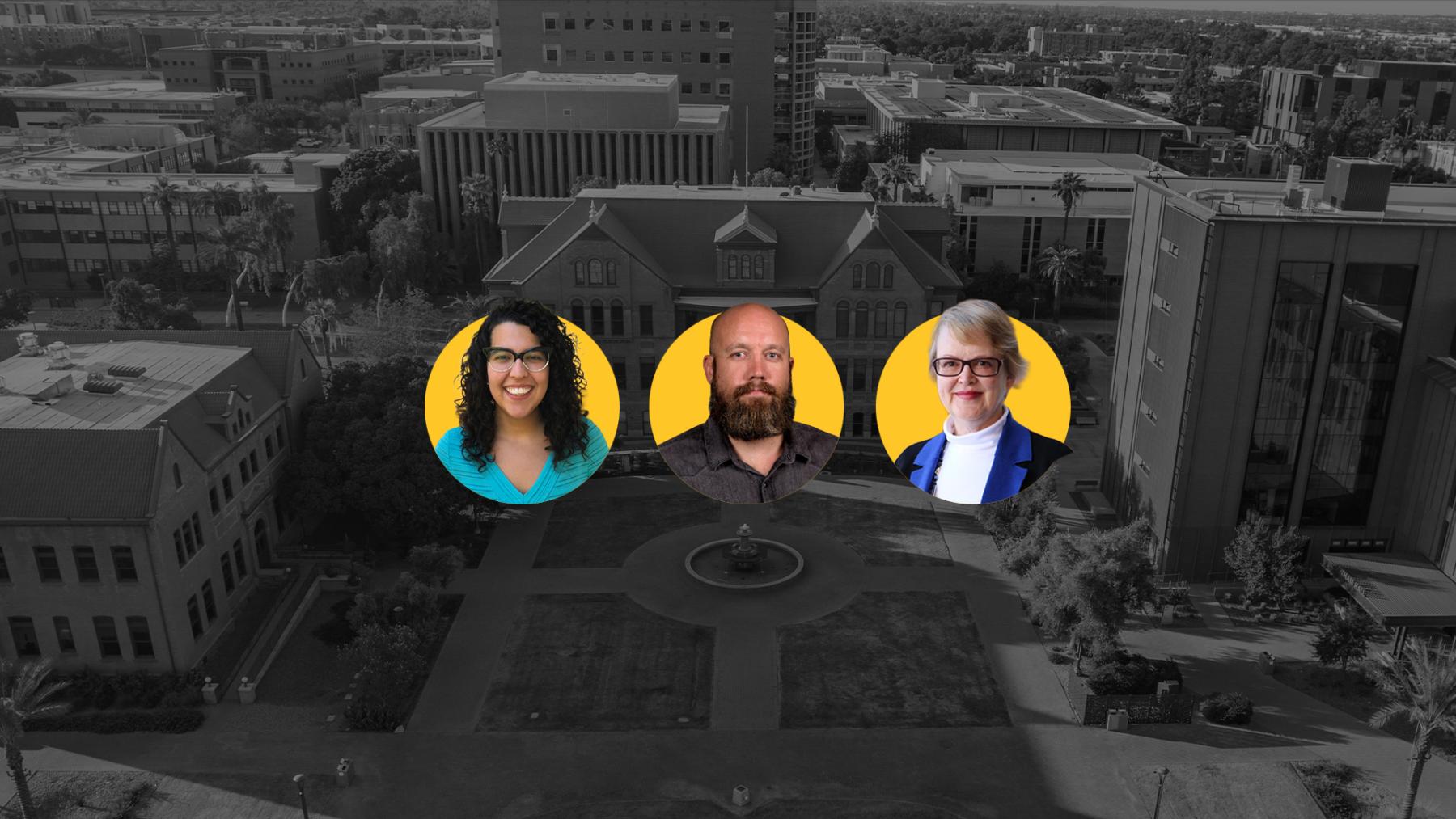
From practice to presentation: How to deliver a winning faculty job talk
Giving a job talk can feel like the most high-stakes presentation of your academic job search. It’s not just a research seminar—it’s your opportunity to demonstrate vision, communication skills, and fit within a department. In a recent Lunch and Learn, faculty members Associate Professor in School of International Letters and Cultures, Anita Huizar-Hernandez, Professor in School of Life Sciences Jeffrey Jensen, and Professor in Department of Physics Patricia Rankin shared concrete strategies to help graduate students and postdocs succeed as future faculty candidates. Here are key actions to take as you prepare for your next academic interview.
1. Know Your Audience and Tailor Your Talk
Job talks vary depending on the institution and department. Before you visit, research who will be in the audience—faculty, postdocs, and students—and what disciplines they represent.
Dr. Huizar-Hernandez emphasized that one talk won’t fit all audiences. Interdisciplinary scholars should adapt their presentation to each department’s norms, whether that means adjusting slide content or presentation style. Dr. Rankin added that clarity always wins: “If you’re deciding between being complicated and straightforward, be straightforward.”
Actions:
- Review the department’s website and faculty bios.
- Adjust your examples, language, and visuals to make your work accessible beyond your specialty.
2. Practice Like It’s the Real Thing
Mock job talks are essential preparation. Faculty advised giving your talk to peers, mentors, and even tough critics who will point out weak spots. “The most useful person,” said Dr. Rankin, “is someone who will tell you what’s wrong with it.”
Dr. Huizar-Hernandez recommended scheduling at least one full mock job talk with your department and others over Zoom if your actual talk will be virtual. Dr. Jensen encouraged repeating the talk until it feels natural: “There’s really no such thing as saying it too many times.”
Actions:
- Arrange multiple practice sessions with diverse audiences.
- Solicit detailed feedback on pacing, clarity, and visuals.
- Attend other candidates’ job talks to learn disciplinary norms.
3. Prepare for the Q&A
Handling post-talk questions gracefully is part of the evaluation. Dr. Jensen advised balancing openness with confidence: acknowledge thoughtful critiques, but don’t get flustered or retreat. Dr. Huizar-Hernandez suggested repeating or paraphrasing complex questions to ensure understanding, especially when working across disciplines or languages.
Actions:
- Practice common and challenging questions with mentors.
- Learn to pause, thank the questioner, and reframe your response thoughtfully.
4. Show Confidence, Not Perfection
Panelists agreed: enthusiasm and composure count as much as content. “You’ve been invited because they see something in you,” Dr. Rankin reminded attendees. Huizar-Hernandez added, “Approach the faculty as future colleagues, not superiors.”
Action:
- Before your talk, take a deep breath, remind yourself that you belong in the room, and let your excitement for your work show.
5. Treat It as an Investment Pitch
Dr. Jensen offered a practical mindset: “You’re asking for a multi-million-dollar investment. Convince them your research plan is worth it.” Present a clear, feasible roadmap for your next five years, demonstrating both ambition and realism.
Action:
- Outline your research agenda like a business plan—define your questions, resources, and next steps.
Final Thought:
A polished, authentic job talk can make all the difference. As Dr. Huizar-Hernandez put it, “This is a celebration of your work.” With careful preparation, thoughtful adaptation, and genuine enthusiasm, you can turn your job talk into the strongest case for your academic future.
More stories from the Graduate Insider

Finding your flow: Managing the graduate writing process
Graduate writing can feel like a marathon—long, demanding, and full of unexpected detours. But as Tristan Rebe, Program Manager for the Graduate Writing Center, reminded students in the Grad15: Managing the Writing Process webinar, writing is not about perfection—it’s about progress. “The best dissertation is a done dissertation,” Rebe said, quoting Robert Frost: the best way out is through.

Promoting resilience and well-being in Ghana — and across the globe

From practice to presentation: How to deliver a winning faculty job talk
Giving a job talk can feel like the most high-stakes presentation of your academic job search. It’s not just a research seminar—it’s your opportunity to demonstrate vision, communication skills, and fit within a department. In a recent Lunch and Learn, faculty members Associate Professor in School of International Letters and Cultures, Anita Huizar-Hernandez, Professor in School of Life Sciences Jeffrey Jensen, and Professor in Department of Physics Patricia Rankin shared concrete strategies to help graduate students and postdocs succeed as future faculty candidates.